The Illusion of Control: Unpacking Perfectionism
I never used to think I was a perfectionist.
Mainly because I don’t like labels, and so to call myself a perfectionist is like labelling something within me that cannot be defined or explained, that feels too oversimplified.
After all, labels are merely used to clump together defining characteristics, symptoms or experiences that someone has, yet they often leave out all of the complex intricacies that make us all so incredibly unique.
None of us can truly be defined by labels, but we can use them as a guide to understanding ourselves, and gain a little more self-awareness of what currents are driving us under the surface so we can navigate our lives with a little more compassion, grace and ease.
What does being a perfectionist really mean?
I wanted to write about perfectionism, and everything that goes along with it, because it’s such a misunderstood and deeply layered way of being.
None of us are perfect, obviously, and while we may know and recognise that on the surface, it doesn’t mean that there aren’t some deeper, subconscious beliefs hiding within us, that are go against those beliefs.
It’s really easy to say things, but it’s much harder to embody them.
Of course, I can say to myself out loud as much as I want “I am enough just as I am, I have nothing to prove to anyone and it is safe for me to relax and let go” yet these words mean absolutely nothing if I am not embodying them as a belief within my being.
When we say positive affirmations out loud that don’t ring true in the center of us, we are only going through the motions. This is a clever trick of the ego that makes us believe we’re actually doing something that might have a positive effect. In reality, it’s only serving to keep us stuck in the illusion.
Positive affirmations are wonderfully supportive and empowering, especially when done in context - however, we cannot trick ourselves into believing something as deep as feeling worthy, if at our core it does not feel true.
Self-worth is something we have to work our way towards, inch by inch - there is no magic solution that creates it instantly.
The root cause of perfectionism
This is really what perfectionism is - the need to have outer control to maintain the illusion of control within. When we are so distracted by organising our external reality, we keep the inner chaos at bay.
This is why I find it so hard to slow down, why I find meditating something that I just cannot get myself to do, and why I tend to buzz around, filling my days, so that I don’t have to stop and feel. This is all to do with the 12-3 energy in the Soul Contract, but it affects all of us.
Under the pretense of being ‘busy’ which, in our society, is a slyly acknowledged badge of honour, we can avoid being still with ourselves to really feel what’s going on deep within us.
Being busy is yet again another clever trick of the ego.
The ego isn’t inherently bad, it’s just here acting as a ceiling of our consciousness that we are here to gently break through. It convinces us that being busy and working hard prove our worth, yet that very busyness keeps us from confronting the deeper question of whether we truly feel worthy at all.
It is the perfectionists and the busy bees amongst our society who often experience the hardest challenge of accepting, embracing and loving themselves for this exact reason.
Perfectionism and the need for control
So what are the defining characteristics of perfectionism? Usually, it’s the need to control our external circumstances to maintain the illusion that we’re in control of our lives. This stems from a deep fear of losing control that most of us carry.
When we perceive ourselves to be in control, we feel safe, and feeling safe is a core human need.
Yet the truth is, we are never truly in control. The forces of fate, nature, universal laws, Divine timing, and everything in between guarantee an absolute lack of control over the outside world. We are merely boats navigating the ocean of life, riding the storms of change, and this is what scares most of us more than anything else.
Feeling in control gives us a sense of safety and survival, yet ironically none of us make it out of this life alive. In the end, we’re just trying to control the uncontrollable.
But perfectionism isn’t just about controlling the outside world, it’s also about controlling our inner world. We don’t just seek order externally to feel safe from life’s chaos; we do it to quiet the storm within.
It’s almost as if we can’t bear to live in a world that feels messy and unpredictable because it mirrors the emotional turmoil inside us. Controlling the external gives us the illusion of the peace we truly crave within.
For me, this manifests in needing a really clean house. If my space feels cluttered, dirty, or messy in any way, it weighs on me so much that I’ll find myself wiping invisible dust off skirting boards at 9 p.m. and hoovering floors that barely need it. My house doesn’t have to be perfect, but for me to feel peaceful, it has to be close.
I used to think this was just a personality quirk, perhaps even an expression of my 5-5 energy in my Soul Contract that craves energetically clean environments. But now, I see that perfectionism has been playing its role too.
We all carry a unique set of experiences, trauma, conditioning, ancestral lineage, and imprints from family and society. It’s a heavy burden, and for many of us, it shapes how we navigate life.
The mind will always take the quickest route to creating a sense of calm. The problem is, it often defaults to what provides a temporary fix rather than true healing. It’s like putting a plaster over an empty fuel gauge and hoping the tank will magically refill itself.
For me, it’s cleaning, whether it’s scrubbing the house, decluttering a drawer, taking a shower, or tidying the kitchen. For others, it might be work, comfort eating, scrolling, binge-watching, shopping, anything that soothes the frayed nerves that come from feeling out of control.
Perfectionism, at its core, is just another way we try to create order in our lives to calm the turmoil within. Sometimes it helps, but more often than not, it’s just another plaster hiding an empty tank.
Meeting expectations and the drive to be perfect
Another part of perfectionism is about meeting the expectations of others in order to feel worthy, loved, accepted, and whole.
More often than not, these expectations don’t actually come from others, they come from within us. We carry them like invisible burdens, though they disguise themselves as the need to please.
We may feel societal expectations, but the ones that weigh heaviest usually come from our parents. After all, who knows us better than the people who made us? Even when we believe we don’t need their approval, deep down, many of us secretly crave it.
Even if we’ve been let down or abandoned by our parents, some part of us still believes that because they created us, they must hold the answers to who we are - and that is the one thing every human is searching to understand: what is my purpose and why am I here?
Yet, we are all completely unique.
Our parents leave their imprints on us, but we are not them. We are separate souls, with separate identities and individual paths. What feels right for them may not feel right for us. Their choices may not be our choices.
Sometimes, simply recognising the undercurrent of needing their approval is what sets us free.
When we release the need to prove ourselves to the world, we loosen the grip of perfectionism - that relentless drive to be more, to be enough, to make a point.
But it’s not just the expectations from others that push us into perfectionism. The force that drives us from within is even more ferocious. This final layer of perfectionism is about maintaining the ‘perfect’ mask, so that no one sees the flaws underneath.
Sound familiar?
Healing the fear of being seen for who we truly are
I gave myself a Divine Healing session today and uncovered a fear of ‘being imperfect.’ And as soon as I read those words, I felt the truth of them.
I have always wanted to maintain a mask of professionalism in my work and a sense of detachment in my personal life. I don’t like people seeing my messiness. But the honest truth is, I am messy.
I am human, and mess comes with that. Yet, for a long time, and still now, I carry a sense of shame about just how messy I feel.
Perfectionism is my way of hiding. If I work hard enough, maybe no one will see what’s really going on beneath the surface. It’s almost like a divide-and-conquer technique - if I control how people see me, maybe I can control how they feel about me, too.
This could be connected to the strong 7-7 energy in my Soul Contract (check out the video here), which speaks to the tendency of 7s to guard their vulnerability and wounded hearts to feel safe.
But my deepest fear is this: if people see me, and I mean really see me, for the mess and shame I carry, will the world still support me? Will clients still want to work with me? Will my boyfriend still love me? Will my parents still accept me? Will my friends? Or will I be alone?
The fear behind being seen is the fear of being abandoned. And nearly all of humanity carries this fear in its heart.
I feel comfortable writing about this because I know every one of us is built from layers of shame and mess, otherwise, we wouldn’t be human. If you’re reading this, I hope it brings you some peace to know that you’re not alone. It’s okay that sometimes, you wear the mask of perfectionism to avoid feeling vulnerable.
It’s okay.
Loving and letting go of perfectionism
When we set impossibly high expectations for ourselves, we are seeking proof of our worth, proof that we are valuable, important, needed, loved. Proof that we deserve to exist as we are.
I personally carry huge expectations on my shoulders. But as I write this I am gently reminded to lower them and release the pressure. Only when I let go of the drive to be the ‘best version’ of myself can I accept the version that I am now, without waiting to love a future version of me that doesn’t yet exist.
In an age where social media constantly urges us to become better, to eat the perfect diet, have the perfect body, wear the perfect wardrobe, take the perfect holiday, have the perfect home, make money in the perfect way, it can feel utterly exhausting to those of us prone to perfectionism (and comparison).
It’s too much.
What if we finally admitted to ourselves that striving for perfection is hurting us more than it’s helping us? What if I admitted that my need to obsessively clean the house is actually a symptom of inner stress, that it needs my love and attention more than the house does?
What if I admitted that there are parts of my shadow I haven’t fully embraced, and that it’s time to practice self-compassion and self-forgiveness?
What if I admitted that being busy keeps me trapped in avoidance, and that it’s time to slow down and listen to what’s really going on inside? What if I admitted that I need to work on loving myself more?
Maybe, just maybe, this is what it’s been about all along.
Further Support & Resources
If you’re navigating emotional challenges or feeling weighed down by old patterns, here are a few gentle ways to support yourself:
Discover your Soul Contract
Gain insight into the hidden patterns shaping your reality, and understand why certain emotional themes keep repeating in your life.Join a Group Healing session
Experience a shared, guided space for emotional release and support, and connect with others on a similar path.Explore Divine Healing
Work one-to-one to release emotional patterns, trauma, and limiting beliefs, so you can feel more at home in who you are.Stay connected
Join my newsletter for monthly updates alongside the latest insights from the blog.


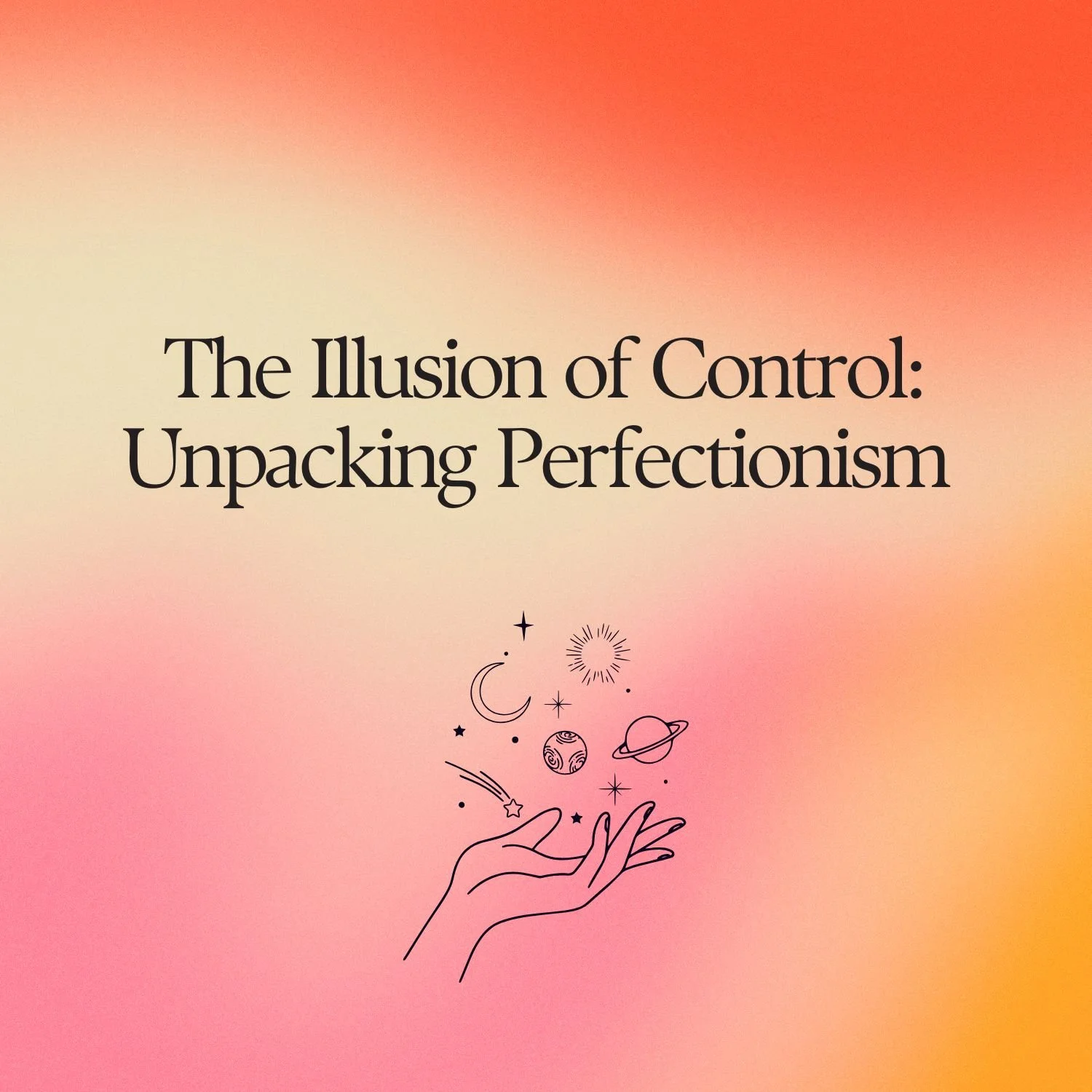


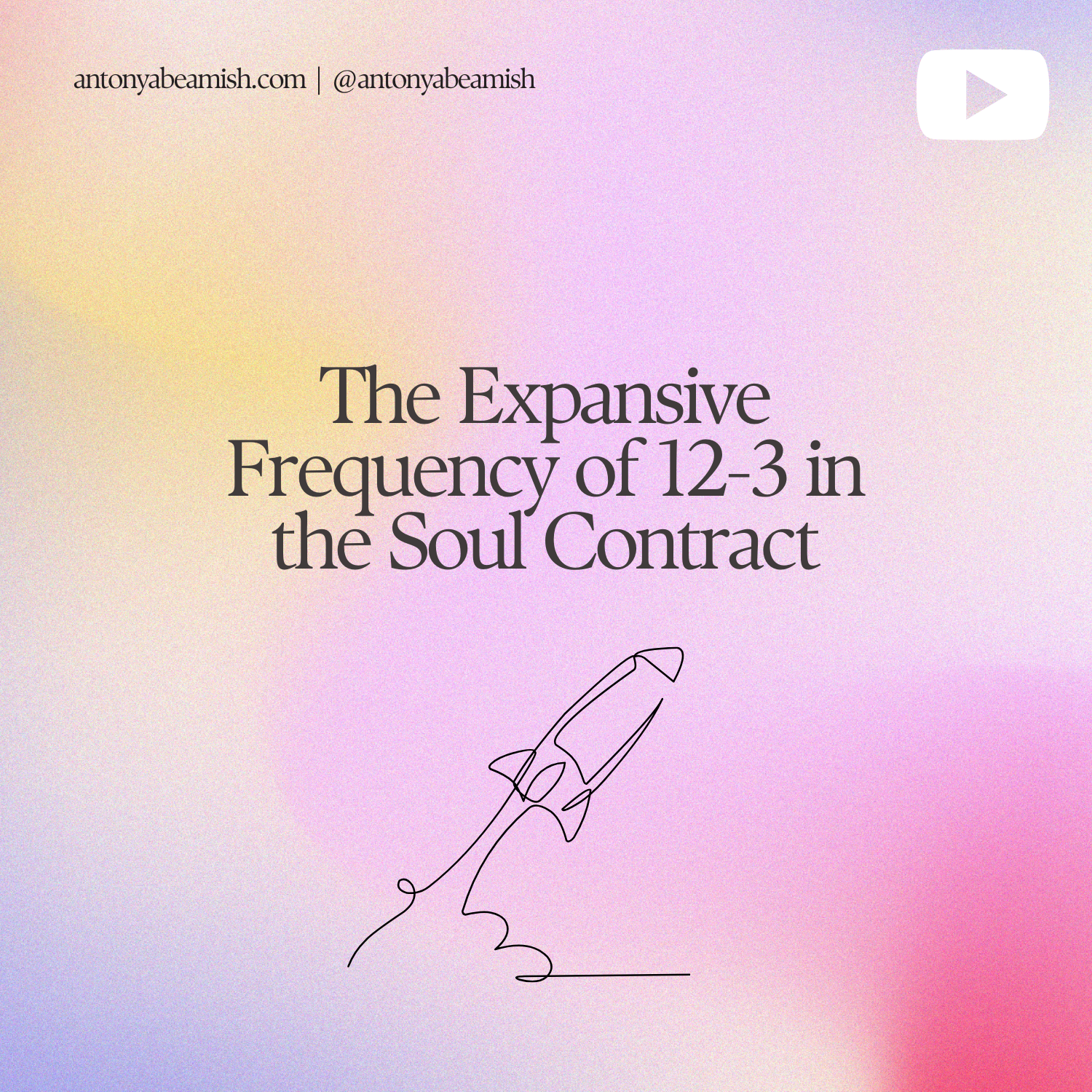
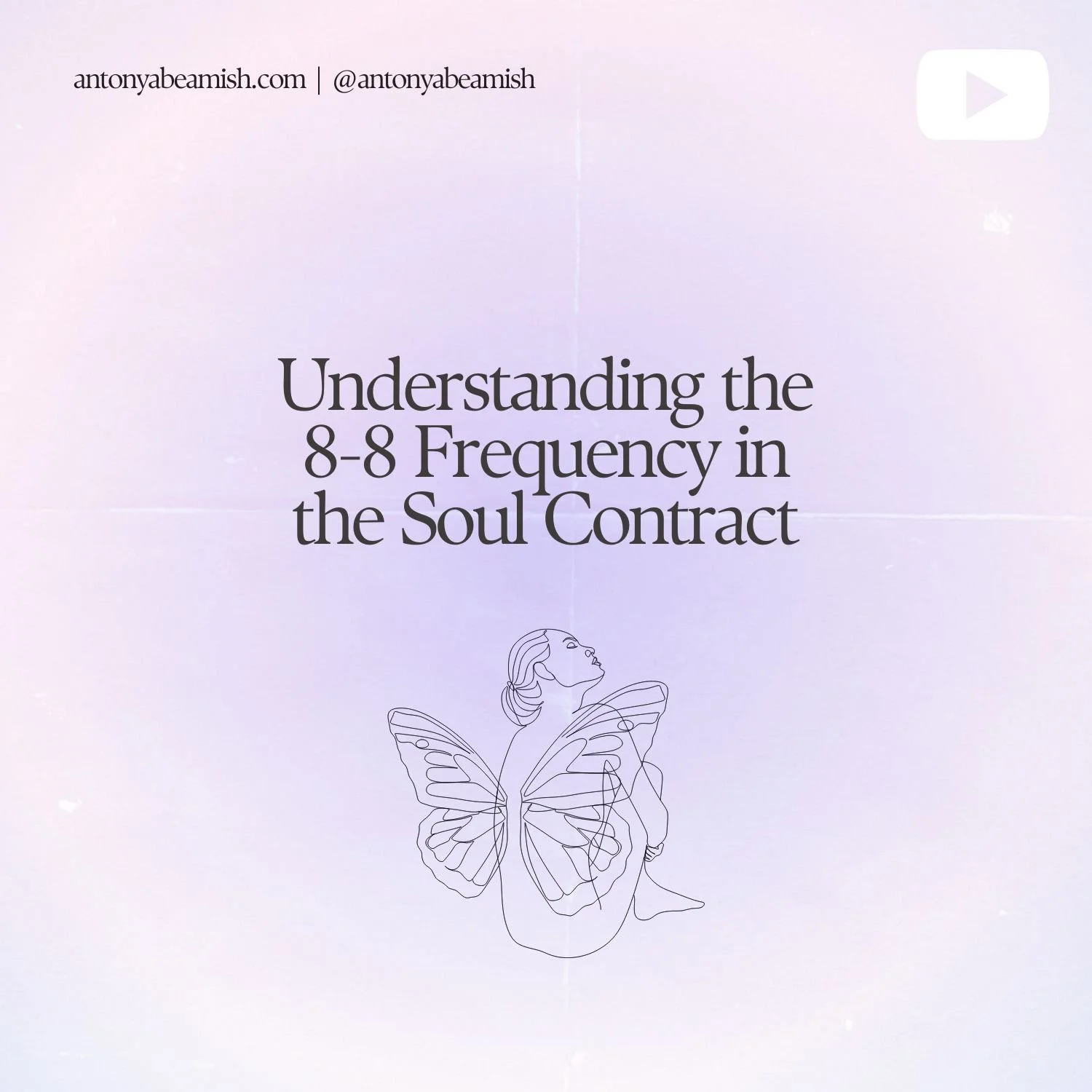
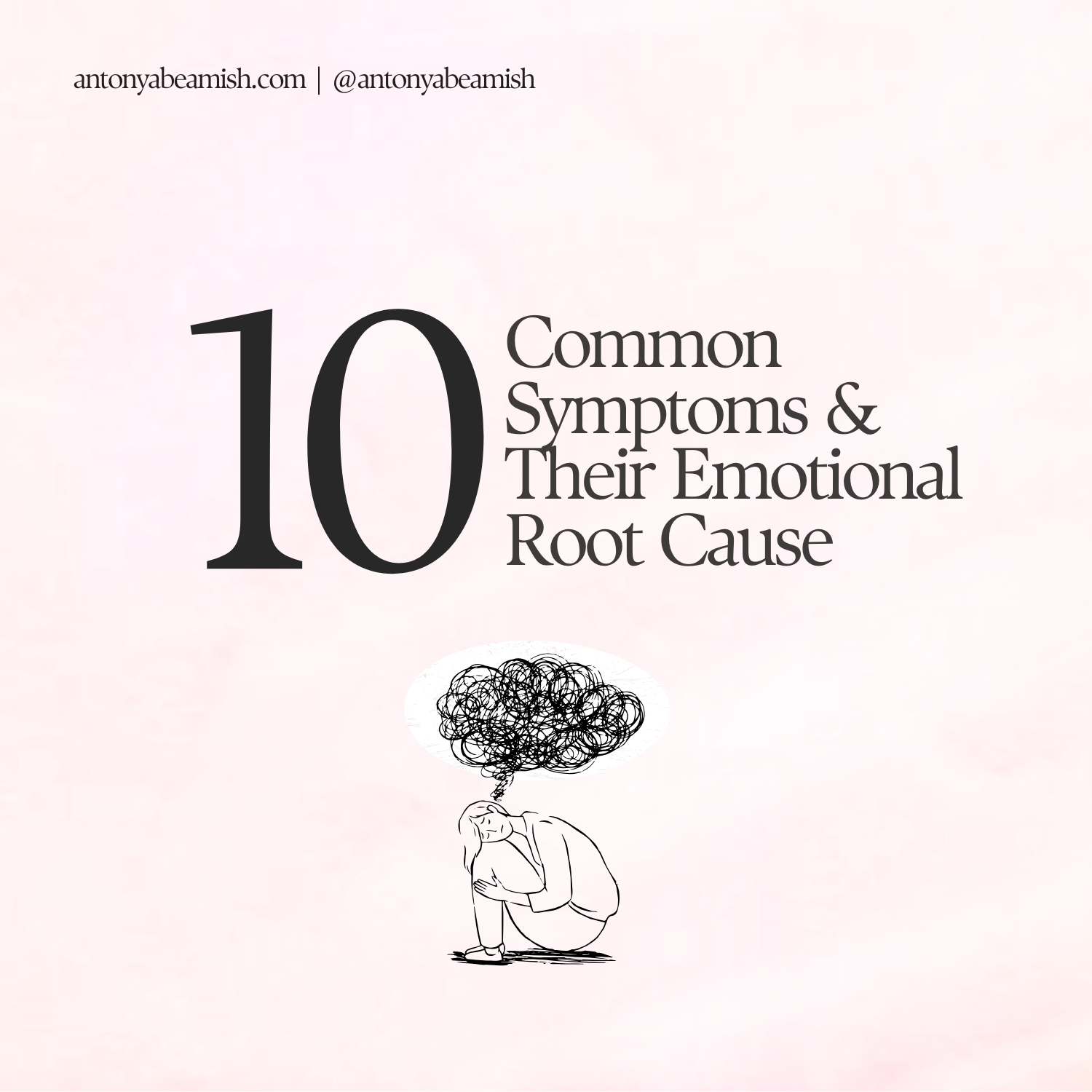
















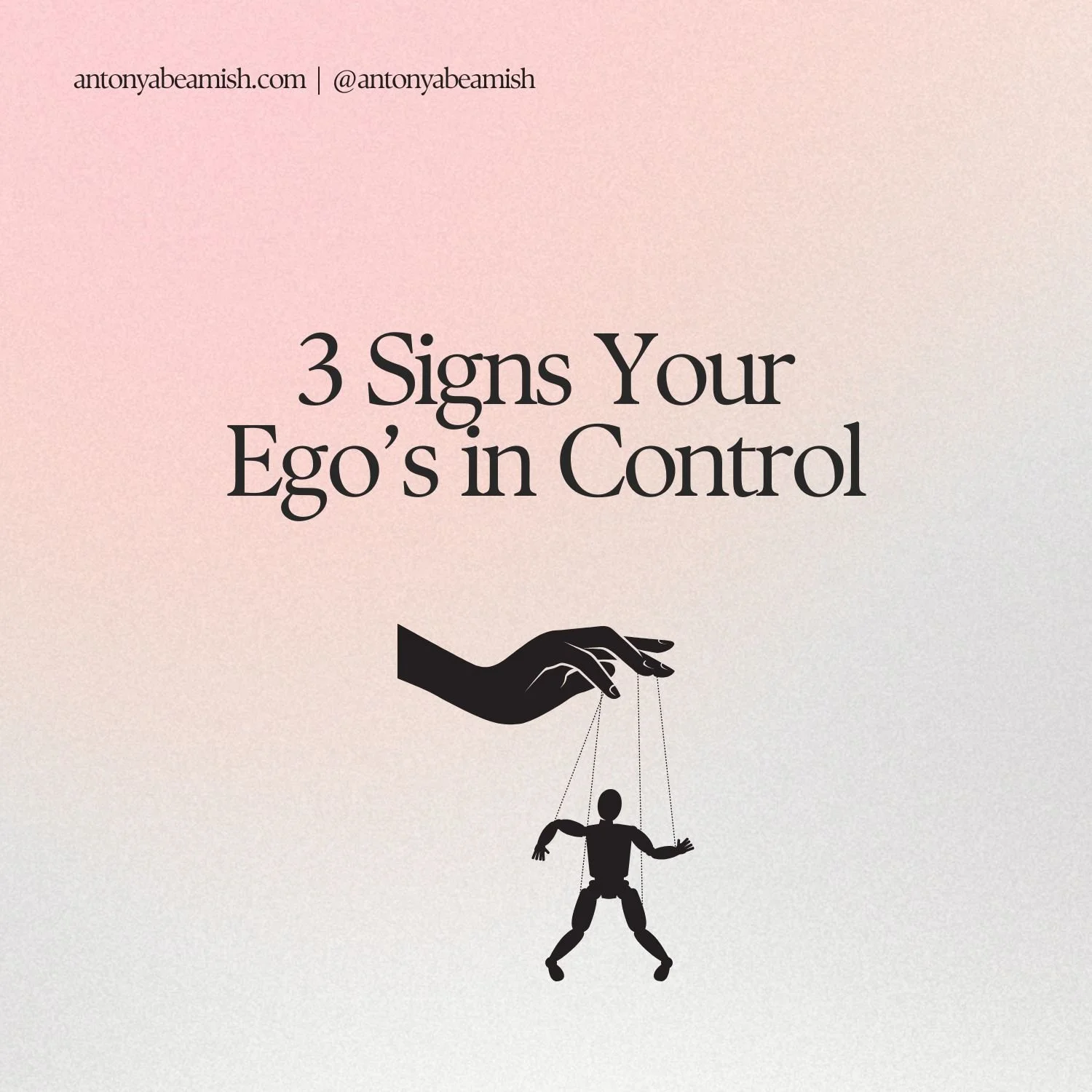







A deeper look at five of the most powerful and rarely seen Divine Healing charts. In this post, I explore Human Givens, Karmic Monads, Realising Gifts and Talents, Shadow Energies and Abundance, and how these profound charts work layer by layer to release subconscious programming and shift you at the core.